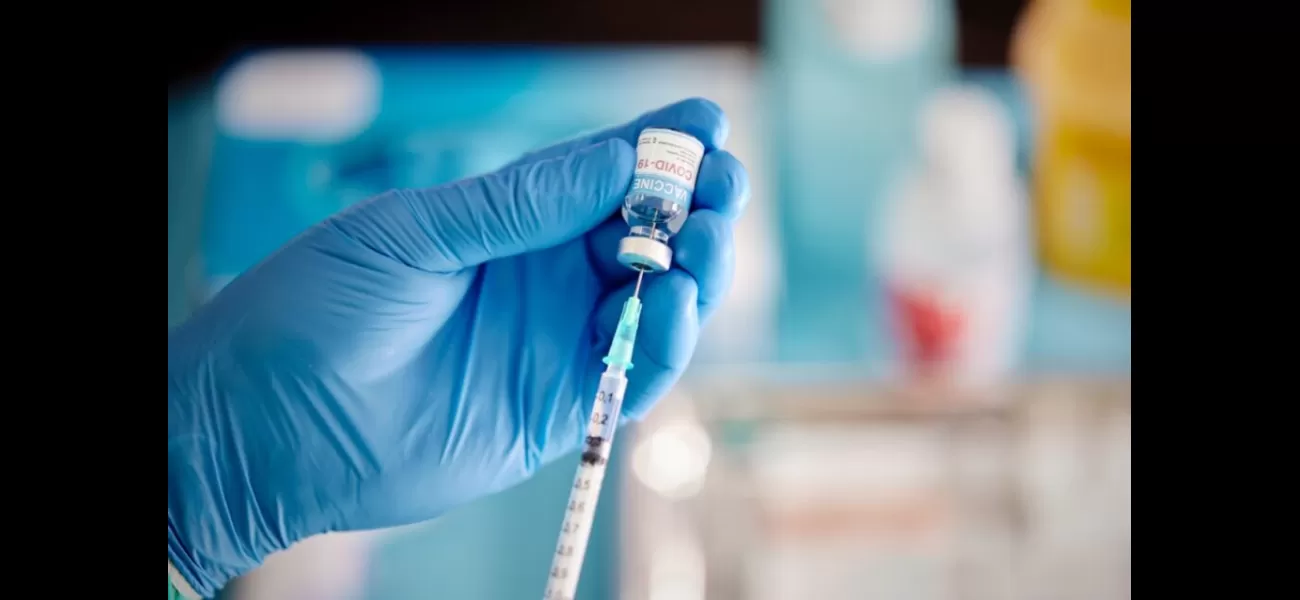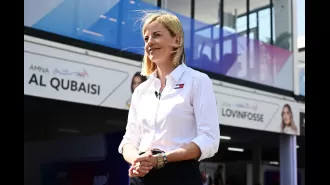CDC teams up with Black churches to maintain efforts in spreading awareness and education about the COVID-19 pandemic.
CDC gives $3 million to National Black Churches.
July 1st 2024.

In a recent development, the Centers for Disease Control and Prevention (CDC) has allocated a generous sum of $3 million to the Atlanta-based Conference of National Black Churches (CNBC) as part of their larger effort of $18 million to support community organizations. This decision has been widely reported by the Atlanta Journal-Constitution, which speculates that it may have been influenced by the request of CNBC's chairman, Rev. W. Franklyn Richardson. In an interview, Rev. Richardson expressed his concerns about the lack of attention given to black communities by the CDC in the past, to which they acknowledged and promised to rectify.
For Rev. Richardson, this is much more than just a financial boost. He sees it as an opportunity to have more in-depth discussions about overall health within the black community. As he put it, "Pastors are trusted messengers. They are there for people during their most vulnerable moments, whether it's sickness or death. And churches are sacred spaces where people feel safe and supported." He also highlighted the role of churches in providing not just vaccinations but also essential food aid to families in need during the pandemic.
CNBC is an umbrella organization that includes various prominent black churches such as the African Methodist Episcopal Church, African Methodist Episcopal Zion Church, Christian Methodist Episcopal Church, Church of God in Christ, the National Baptist Convention USA, and the Progressive National Baptist Convention. With a national reach of 31,000 congregations and 3,000 congregations in Georgia alone, CNBC has been a strong advocate for the vaccination efforts in the communities where its member churches are located.
The latest funding from the CDC is a part of their Bridge Access Program, which focuses on providing free COVID-19 vaccines to adults who do not have health insurance or whose insurance does not cover the vaccine. This program aims to make the vaccine accessible to all and will continue to do so until the end of 2024.
According to the NAACP and the National Institutes of Health, the COVID-19 pandemic has disproportionately affected Black Americans, both in terms of health and economic impact. A recent study by Pew Research found that 64% of regular worship attendees at historically Black churches were encouraged by their pastors to get at least one shot of the COVID-19 vaccine, which is significantly higher than the percentage for other religious groups. This highlights the important role played by faith leaders in promoting vaccination within their communities.
The success of such efforts can also be seen in a 2021 study by Loma Linda University School of Pharmacy, which revealed that the partnership between Black faith leaders, public health officials, and Black medical professionals has led to an increase in COVID-19 vaccinations in the Black community of San Bernardino County, California. As Jacinda Abdul-Mutakabbir, an assistant professor at Loma Linda University School of Pharmacy and the primary author of the study, stated, "Religion and prayer have always been important in establishing trust in healthcare among Black Americans. The leadership of pastors was crucial in the success of this initiative as they have a direct connection with individuals in the Black community."
In conclusion, the collaboration between the CDC and CNBC is a significant step towards addressing the health disparities faced by the Black community during the pandemic. The involvement of trusted faith leaders and community organizations has played a crucial role in promoting vaccination and increasing access to healthcare resources. As we continue to navigate through the pandemic, it is essential to recognize the importance of such partnerships in ensuring equitable and inclusive healthcare for all.
For Rev. Richardson, this is much more than just a financial boost. He sees it as an opportunity to have more in-depth discussions about overall health within the black community. As he put it, "Pastors are trusted messengers. They are there for people during their most vulnerable moments, whether it's sickness or death. And churches are sacred spaces where people feel safe and supported." He also highlighted the role of churches in providing not just vaccinations but also essential food aid to families in need during the pandemic.
CNBC is an umbrella organization that includes various prominent black churches such as the African Methodist Episcopal Church, African Methodist Episcopal Zion Church, Christian Methodist Episcopal Church, Church of God in Christ, the National Baptist Convention USA, and the Progressive National Baptist Convention. With a national reach of 31,000 congregations and 3,000 congregations in Georgia alone, CNBC has been a strong advocate for the vaccination efforts in the communities where its member churches are located.
The latest funding from the CDC is a part of their Bridge Access Program, which focuses on providing free COVID-19 vaccines to adults who do not have health insurance or whose insurance does not cover the vaccine. This program aims to make the vaccine accessible to all and will continue to do so until the end of 2024.
According to the NAACP and the National Institutes of Health, the COVID-19 pandemic has disproportionately affected Black Americans, both in terms of health and economic impact. A recent study by Pew Research found that 64% of regular worship attendees at historically Black churches were encouraged by their pastors to get at least one shot of the COVID-19 vaccine, which is significantly higher than the percentage for other religious groups. This highlights the important role played by faith leaders in promoting vaccination within their communities.
The success of such efforts can also be seen in a 2021 study by Loma Linda University School of Pharmacy, which revealed that the partnership between Black faith leaders, public health officials, and Black medical professionals has led to an increase in COVID-19 vaccinations in the Black community of San Bernardino County, California. As Jacinda Abdul-Mutakabbir, an assistant professor at Loma Linda University School of Pharmacy and the primary author of the study, stated, "Religion and prayer have always been important in establishing trust in healthcare among Black Americans. The leadership of pastors was crucial in the success of this initiative as they have a direct connection with individuals in the Black community."
In conclusion, the collaboration between the CDC and CNBC is a significant step towards addressing the health disparities faced by the Black community during the pandemic. The involvement of trusted faith leaders and community organizations has played a crucial role in promoting vaccination and increasing access to healthcare resources. As we continue to navigate through the pandemic, it is essential to recognize the importance of such partnerships in ensuring equitable and inclusive healthcare for all.
[This article has been trending online recently and has been generated with AI. Your feed is customized.]
[Generative AI is experimental.]
0
0
Submit Comment





